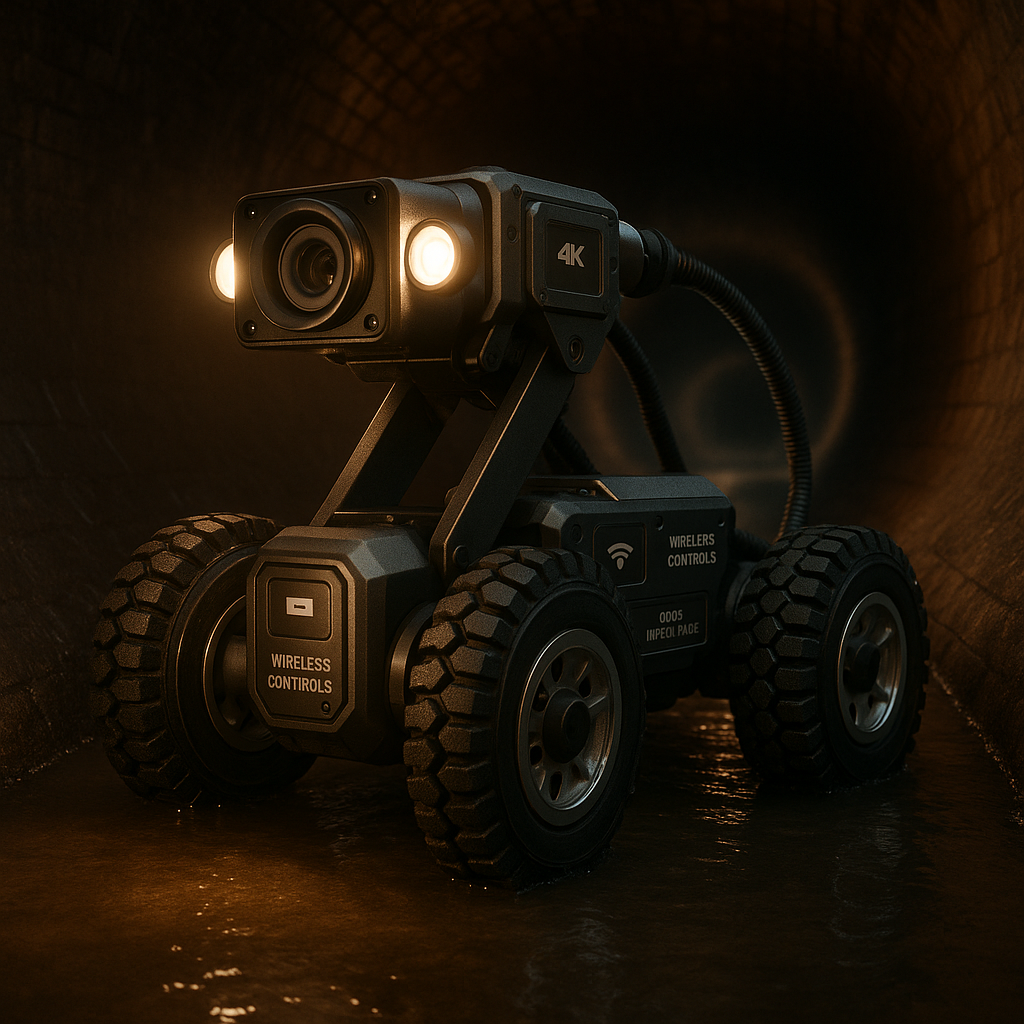Top Sewer Inspection Practices for 2024
Explore the best practices in sewer inspection for 2024, focusing on AI, safety, and efficiency.

Top Sewer Inspection Practices for 2024
Introduction
The sewer inspection industry in 2024 is on the cusp of a technological revolution. With advancements in AI, high-resolution imaging, and robotic systems, businesses can now conduct inspections with unprecedented accuracy and efficiency. As regulations evolve and the demand for sustainable practices grows, staying ahead of these trends is crucial for success.
Technological Innovations in Sewer Inspection
AI and Machine Learning Integration
The integration of AI and machine learning in sewer inspection has transformed how defects are detected and classified. These technologies automate processes, reduce human error, and enhance predictive maintenance capabilities.
- Automated Defect Detection: AI systems can quickly identify and classify defects, improving inspection accuracy.
- Predictive Maintenance: Machine learning algorithms analyze data to predict potential issues before they escalate, reducing downtime.
High-Resolution Imaging
The deployment of 4K and ultra-HD cameras allows for detailed visual inspections, making it easier to detect fine cracks, corrosion, and leaks. This clarity is crucial for maintaining pipeline integrity and preventing costly failures.
Robotic and ROV Systems
Robotic crawlers and remotely operated vehicles (ROVs) enhance safety and efficiency by minimizing the need for confined space entry. These systems can navigate complex pipelines, providing thorough inspections without putting personnel at risk.
Wireless and Portable Devices
Modern inspection systems are increasingly wireless and portable, allowing for easier handling and accessibility in tight or remote areas. These devices are battery-powered, enhancing their utility in various environments.
Cloud-Based Data Management
Digitalization and cloud storage of inspection data facilitate better collaboration and decision-making. Remote monitoring and data-driven insights are now integral to effective sewer management.
Industry Regulations and Standards
The industry is witnessing a shift towards more stringent regulations focused on aging infrastructure maintenance and environmental compliance.
- Digital Data Reporting: New standards emphasize the use of digital data and AI-assisted results for objective assessments.
- Compliance with Safety Standards: Digital record-keeping enhances traceability and compliance, ensuring safer operations.
Market Trends and Business Opportunities
Growing Market Potential
The global sewer inspection camera market is projected to grow significantly, driven by urbanization, infrastructure modernization, and a shift towards predictive maintenance strategies.
- Market Valuation: Expected to grow from USD 389 million in 2024 to over USD 600 million by 2032.
- Expansion Opportunities: Emerging markets offer significant opportunities due to rapid infrastructure development.
Sustainability and Efficiency
The industry is moving towards smart plumbing solutions and advanced leak detection, aligning with broader sustainability trends. This shift not only benefits the environment but also reduces costs and enhances operational efficiency.
Safety Protocols and Best Practices
Reducing Risks with Robotics
The use of robotic and remote inspection tools significantly reduces the risks associated with confined space entry and hazardous environments.
Enhancing Safety with AI
AI-driven defect detection minimizes human error, reducing inspection time and enhancing safety.
Digital Record-Keeping
Keeping digital records ensures compliance with safety standards and improves traceability, contributing to safer and more reliable operations.
Recent Case Studies and Success Stories
CU Denver's AI Tool
In December 2024, CU Denver developed an AI tool that automates defect inspection in sewer systems, showcasing improvements in efficiency and accuracy.
Industry Innovations
Leading companies such as RIDGID Tools, CUES, and Envirosight have introduced advanced inspection systems with enhanced imaging and robotic capabilities, highlighted at industry expos in early 2025.
Cost and Pricing Information
The cost of sewer inspection cameras varies widely, but the market's growth suggests increasing affordability of advanced systems. Investments in AI and digital infrastructure are expected to lower long-term operational costs by enabling predictive maintenance and reducing emergency repairs.
Practical Tips for Implementing Best Practices
- Embrace Technological Advancements: Invest in AI-powered, high-resolution, and robotic technologies to improve inspection accuracy and efficiency.
- Prioritize Safety: Use robotic systems to minimize risks and comply with safety standards.
- Leverage Data Management: Utilize cloud-based systems for enhanced collaboration and data-driven decision-making.
- Stay Informed on Regulations: Keep abreast of evolving regulations to ensure compliance and maintain competitive advantage.
Conclusion
By adopting these best practices, sewer inspection businesses can enhance their operational efficiency, ensure compliance with evolving regulations, and contribute to sustainable infrastructure management. Embracing technological innovations and keeping safety at the forefront will be key to success in this rapidly evolving industry.